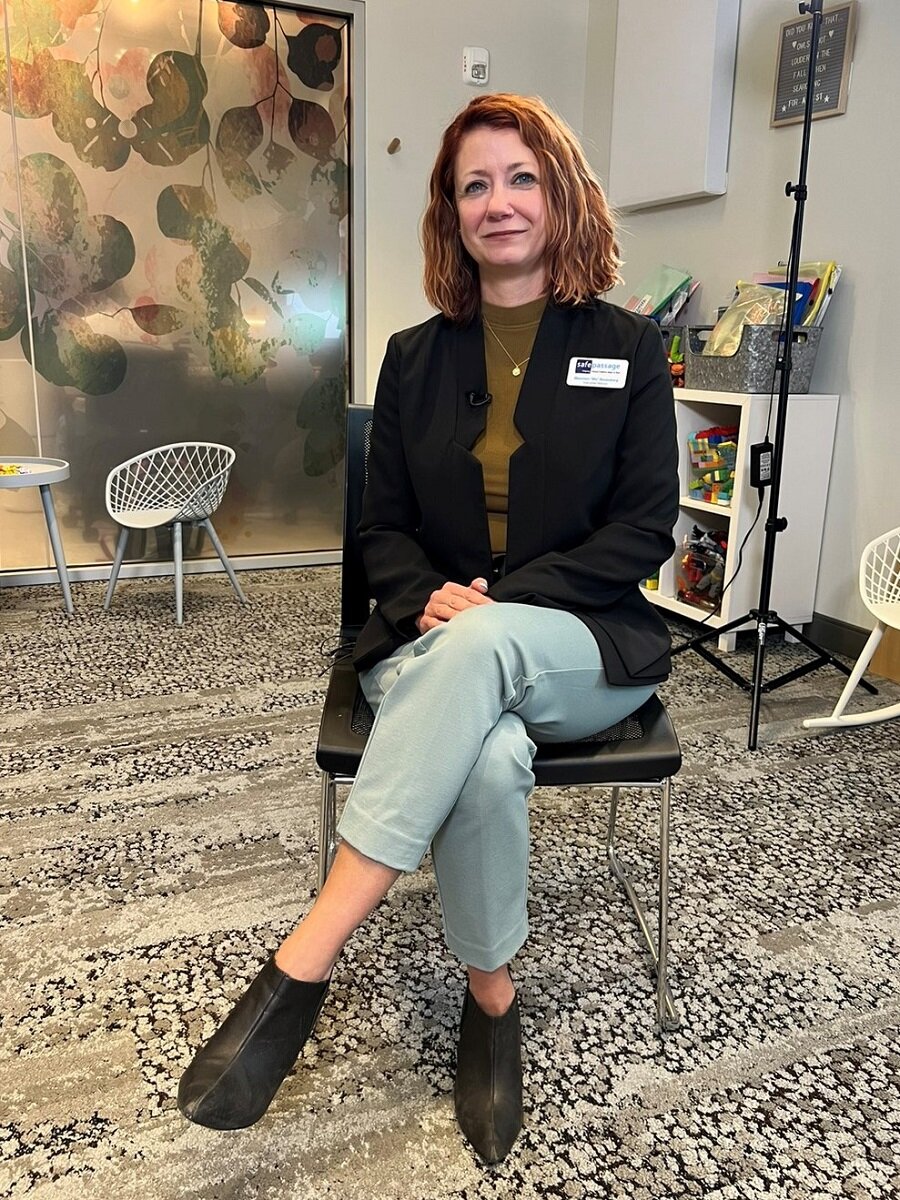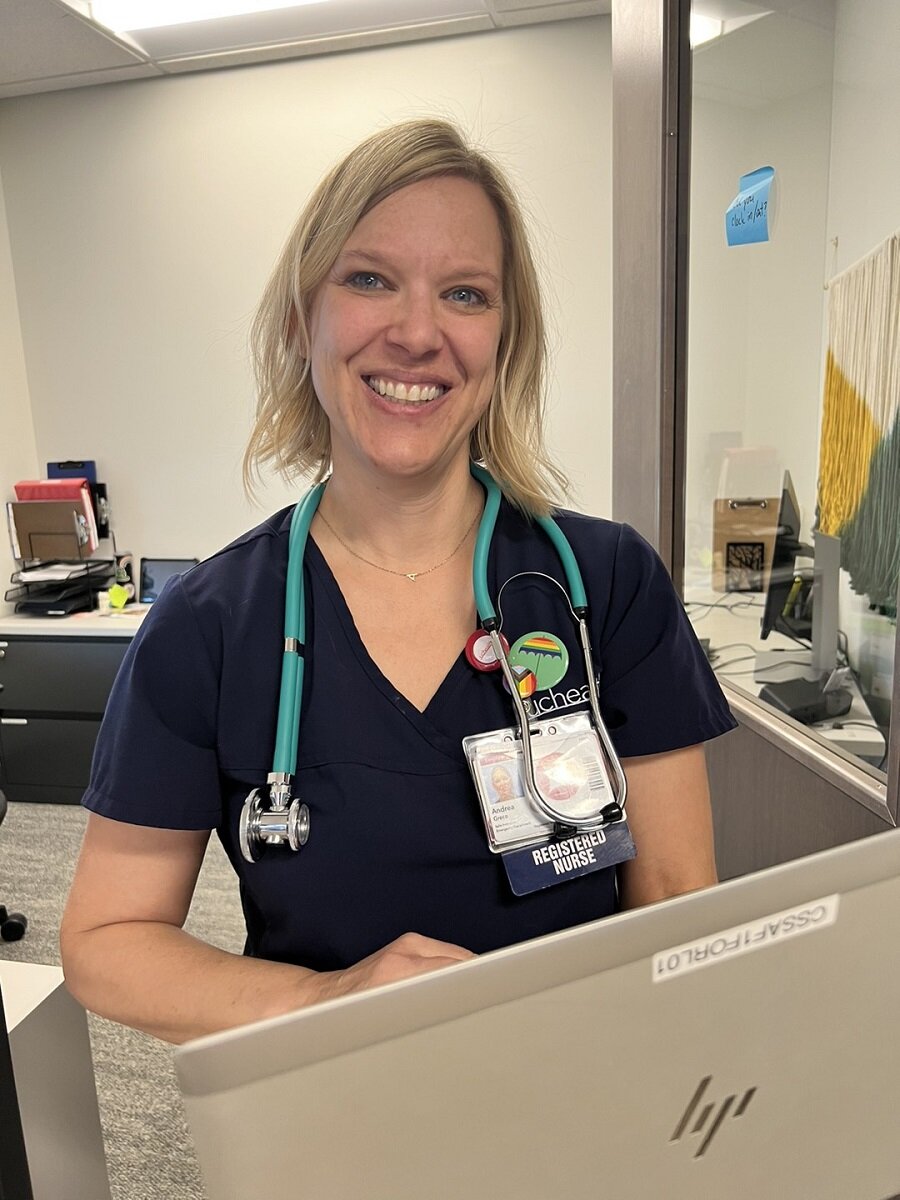Safe Passage provides one place for children to get help after abuse

Editor's note: This story discusses child abuse and potentially triggering situations though not specific cases.
COLORADO SPRINGS, Colo. — Safe Passage staff and partners had one clear message they shared with Rocky Mountain PBS: if someone is talking to you about abuse or an assault, believe them.
Safe Passage is the only fully co-located children’s advocacy center in Colorado. Law enforcement, social services, specialized medical and mental health services, and advocacy are all in one physical space. The center primarily serves the El Paso and Teller Counties.
About one in four girls and one in thirteen boys experience child sexual abuse in the United States. In 2019, CPS agencies investigated the cases of around 2.4 million reports – concerning approximately 3.5 million children.
According to an article from The Gazette, El Paso County has received more calls of suspected child abuse and neglect to the state hotline as well as referrals for case review and full-blown investigations than any other city in Colorado.
Maureen "Mo" Basenberg, the executive director of Safe Passage, told Rocky Mountain PBS that the center served 1,485 primary caregiver, primary and secondary victims in 2022. In 2021, the organization served 1,198. 143 children, the primary victims, were seen in 2022 than in 2021.
“Our community made a commitment to our children, putting together all of those key entities needed to respond to the child's outcry,” Basenberg said.

Instead of having to go into a hospital with loud, scary noises and lots of people, children can go to Safe Passage, where forensic nurse examiners will greet them with trauma-informed care in a quiet setting. Instead of having to wait for a police officer driving across town to come and make the appointment, an officer is already walking down the hall to meet the family. An advocate will also be waiting to meet with the caregiver to provide assistance and resources based on the family’s unique circumstances.
The purpose of a co-located center is so families only need to make one appointment to get the services and resources they need. They don’t have to wait, they don’t have to return back to the situation they just disclosed about and they don’t have to relive the trauma they are experiencing by having to recount what happened multiple times.
Andrea Greco, a forensic nurse examiner from UCHealth, told Rocky Mountain PBS that children sometimes have questions they might not have been able to ask anybody else or haven’t received an answer: Will they be okay? Will anyone know what has happened to them?
According to Greco, answering those questions can be important to the healing process.
“We tell them that it’s not their fault. We tell them we believe them. We tell them we’re sorry that this happened. And then we are empowering those children. We are letting them know that they are in charge of what’s going on in their body,” Greco said.
Depending on the information the child provides, the nurses will decide what exam needs to be done. While the parent or guardian does need to give consent for an exam, Greco emphasized that the forensic nurses also watch the child, their patient, and talk to them and let them know they’re in charge.
“If any time we need to stop, whether they tell us to, whether their body is telling us to or their behavior, their actions, then we will stop.”
There are always two forensic nurses present for an exam, Greco said, and they rely on their comprehensive education on how to perform exams on prepubescent children to make sure they are not causing them pain or any kind of trauma.

Greco explained that one of the tools used for the anal genital exam, the colposcope, is a camera attached to microscopes that allows forensic nurses to visualize the genital and anal structures better by enlarging the image. The reason it is attached to a camera is because there is a screen in the exam room that allows the child and the caregiver — if the child decided they wanted the caregiver in the room — to see what the nurses are seeing if they choose to.
“So it is really empowering for a person who has had something done to them. They've had some power taken from them. Well, we are trying to give that power back and they can see their own body, their own genital regions,” Greco said.
She added that allowing the child to see their body and know that their body is healthy, they are okay and no one is going to know what happened to them unless they tell someone, can be reassuring for both the child and the caregiver.
When something horrible is perpetrated on a child, Basenberg told Rocky Mountain PBS that the whole family ecosystem is affected: the child’s family members are also victims undergoing a secondary trauma that occurs as they are trying to work through what somebody did to a child.
The Family Center, another organization that partners with Safe Passage, helps to create a trauma-informed processing group for victims of different ages as well as a parenting group for parents to figure out what they need in order to support their kids through this difficult process.
Nick Pisano, a licensed professional counselor for The Family Center, said his main focus is reminding parents that they have the strength and wherewithal to go through this process and stand beside their child.
“We remind them that they are not terrible, evil people, and we help them to understand that this, too, shall pass. That with enough help and support, and as long as their child feels supported, cared for and loved, this is something that they can grow beyond,” Pisano said.
Basenberg added that the best thing we can all do if abuse is suspect is to pick up the phone.
"What's important to know is that you as that community ally don't need to have every detail of that information," she said explaining investigators usually have to put cases together like a puzzle. "You may, as a community member, have a key piece to that puzzle."
You can call Colorado's Child Abuse and Neglect Hotline 24/7 at 844-CO-4-Kids or 844-264-5437.
You can also reach Safe Passage through their website linked here or by calling them at 719-636-2460.
Theresa Ho is the RMPBS Kids digital content producer. You can reach her at theresaho@rmpbs.org.
Julio Sandoval is a multimedia journalist at Rocky Mountain PBS. You can reach him at juliosandoval@rmpbs.org.